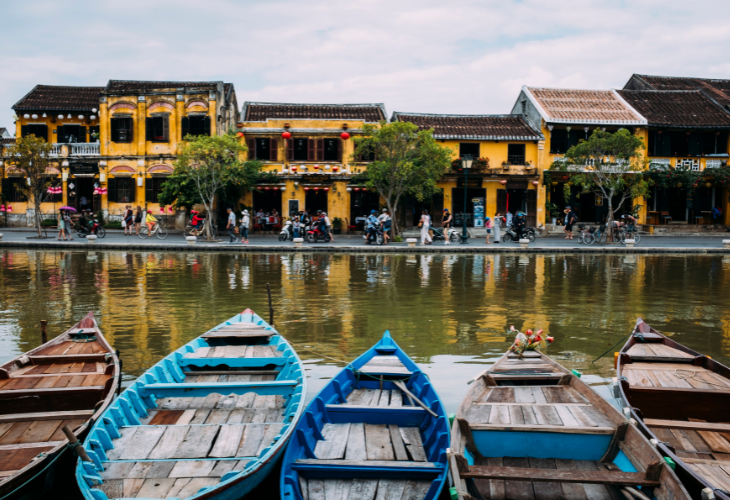Ivory Coast eVisa
99,7%
visa approval rate
700K+
processed applications
24/7
experts by your side

Do you need a visa for Ivory Coast?
Eligible nationalities can apply online for the Ivory Coast Tourist eVisa. The main advantages of the eVisa over a traditional visa are its short processing times, and the comfort of applying from anywhere you like.
What is the Ivory Coast eVisa?
You can request the Tourist eVisa if you travel for tourism, business or medical reasons. If your purpose for the trip is different, you need to apply for the appropriate visa or permit at the nearest embassy.
It is very important to note that the Ivory Coast eVisa is only valid for arrivals at Abidjan's Félix Houphouët-Boigny International Airport, also known as Port Bouet Airport. If you arrive at any other airport, seaport or border crossing, you will not be allowed to enter the country with your eVisa.
Who can apply for the eVisa to Ivory Coast?
How long can you stay in Ivory Coast with an eVisa?
What are the requirements to apply for the eVisa to Ivory Coast?
- Passport valid for at least another 6 months
- Flight tickets in and out of Ivory Coast
- Proof of accommodation (invitation letter if staying at a private house)
How to apply for the Ivory Coast eVisa?
Complete the application online
Prepare your passport and fill in our simple online form in 5 minutes.
Receive your eVisa
We will send you your approved eVisa within a few days, without you having to go anywhere!
Start your journey
On arrival, show your passport and your approved eVisa
Where to submit your application?
Common reasons for a rejected application
- Criminal history
- Incomplete documentation
- Overstayed in the country
- Using a previously lost passport
- Overstayed previous visas
Why choose Visagov
Higher chance of approval
Over 80% of rejections are due to avoidable mistakes. We use AI, OCR and biometrics to reduce errors and ensure your application is approved.
Money-back guarantee
It is unlikely, but it could happen that your application is rejected. In that case, we will refund all the government fees.
Experts by your side
Do you have a question? Write or call us! We are here to help you in every step of the way.
Faster & easier
Official forms tend to be complicated. With us, the entire process is carried out online in a single, simplified form in the language of your choice.
What's the price of an eVisa for Ivory Coast?
The processing fees have a cost of 35 USD that include the 24/7 customer service and a full review by our experts ensuring the success of your application.
Processing time for the Ivory Coast eVisa
How far in advance do I need to apply?
Factors affecting eVisa processing times
- Incomplete information
- Typos or incorrect details
- Peak travel seasons
- Mismatch between passport and application details
Check the status of your eVisa application
Types of visa for Ivory Coast
- Business visa
- Private visit visa
- Research or study visa
- Mission visa
However, you cannot get these from anywhere in the world. Here is a list of the embassies that process visas for Ivory Coast:
- Vienna, Austria
- Brussels, Belgium
- Brasilia, Brazil
- Ouagadougou, Burkina Faso
- Ottawa, Canada
- Kinshassa, DR Congo
- Cairo, Egypt
- Lyon, France
- Paris, France
- Berlin, Germany
- Accra, Ghana
- Conakry, Guinea
- New Delhi, India
- Rome, Italy
- Bamako, Mali
- Mexico City, Mexico
- Rabat, Morocco
- The Hague, Netherlands
- Abuja, Nigeria
- Moscow, Russia
- Riyadh, Saudi Arabia
- Dakar, Senegal
- Seoul, South Korea
- Madrid, Spain
- Bern, Switzerland
- Tunis, Tunisia
What documents do I need to enter Ivory Coast?
- Valid passport
- Approved eVisa unless you are a citizen from a visa exempt country
- Yellow fever vaccination certificate
- Attestation d'Hebergement (Accommodation Certificate). This is necessary if you are staying at a local house instead of a hotel.


































































































































































































































